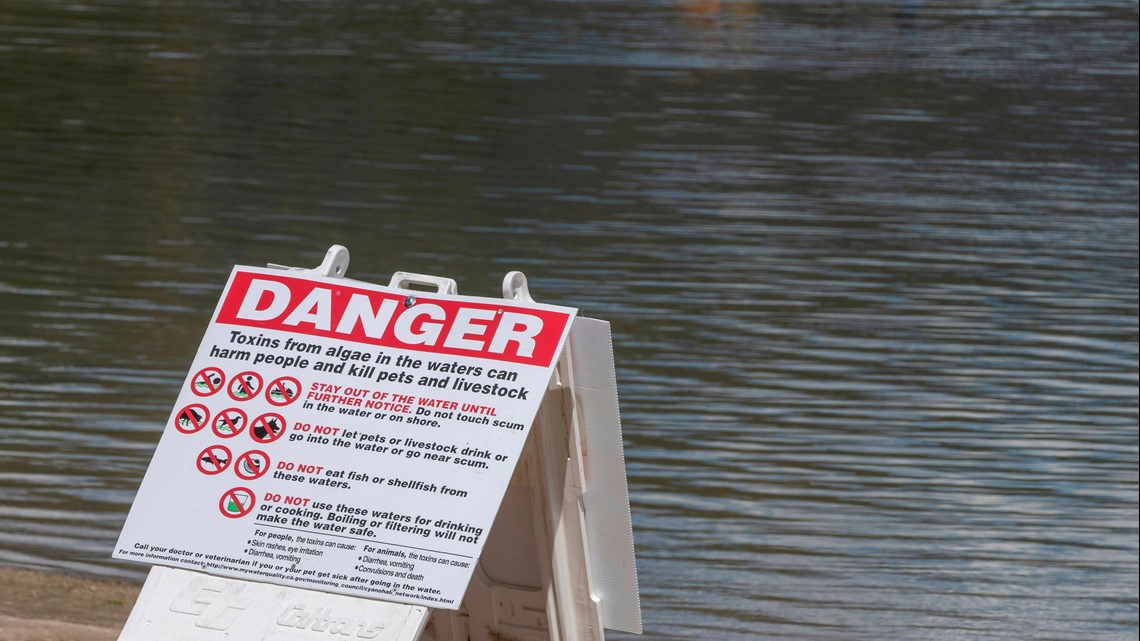SACRAMENTO, Calif. — California water officials on Friday warned people who plan to enjoy the state's lakes and reservoirs this Labor Day weekend to be cautious about harmful blue-green algae.
State Water Resources Control Board said some areas of at least 10 lakes and reservoirs have a "danger" level of algal toxin, which can make people sick and kill animals.
The board released a map of the lakes and reservoirs with a dangerous level of toxic algae, which includes Big Bear Lake, Lake Elsinore, Lake Isabella, San Luis Reservoir and Almaden Lake.
Officials are recommending people and their pets and livestock stay out of the water and avoid drinking it until further notice.


Algae blooms that produce toxins and can sicken swimmers and harm fish are becoming an increasing concern nationwide, causing water warnings this year throughout the country.
RELATED:
In North Carolina, dog owner Melissa Martin said three of her dogs died earlier this month following a swim in a pond in Wilmington that contained blue-green algae. Martin said she took her west highland white terriers to the pond on Aug. 8 and they began seizing when they returned home. They were taken to an animal emergency room but died the next day.
Commonly known as blue-green algae, cyanobacteria produce toxins that on humans can cause nausea, vomiting, diarrhea, rash, irritated eyes, seizures and breathing problems.
Cyanobacteria occur naturally in many freshwater systems and can proliferate rapidly under the right conditions of shallow water, warm weather, plentiful sunshine and still, nutrient-rich water.

